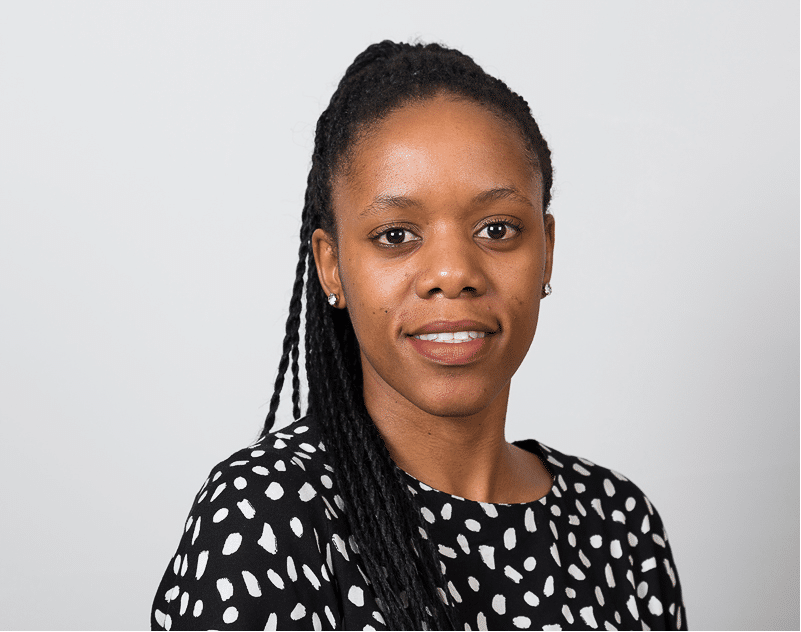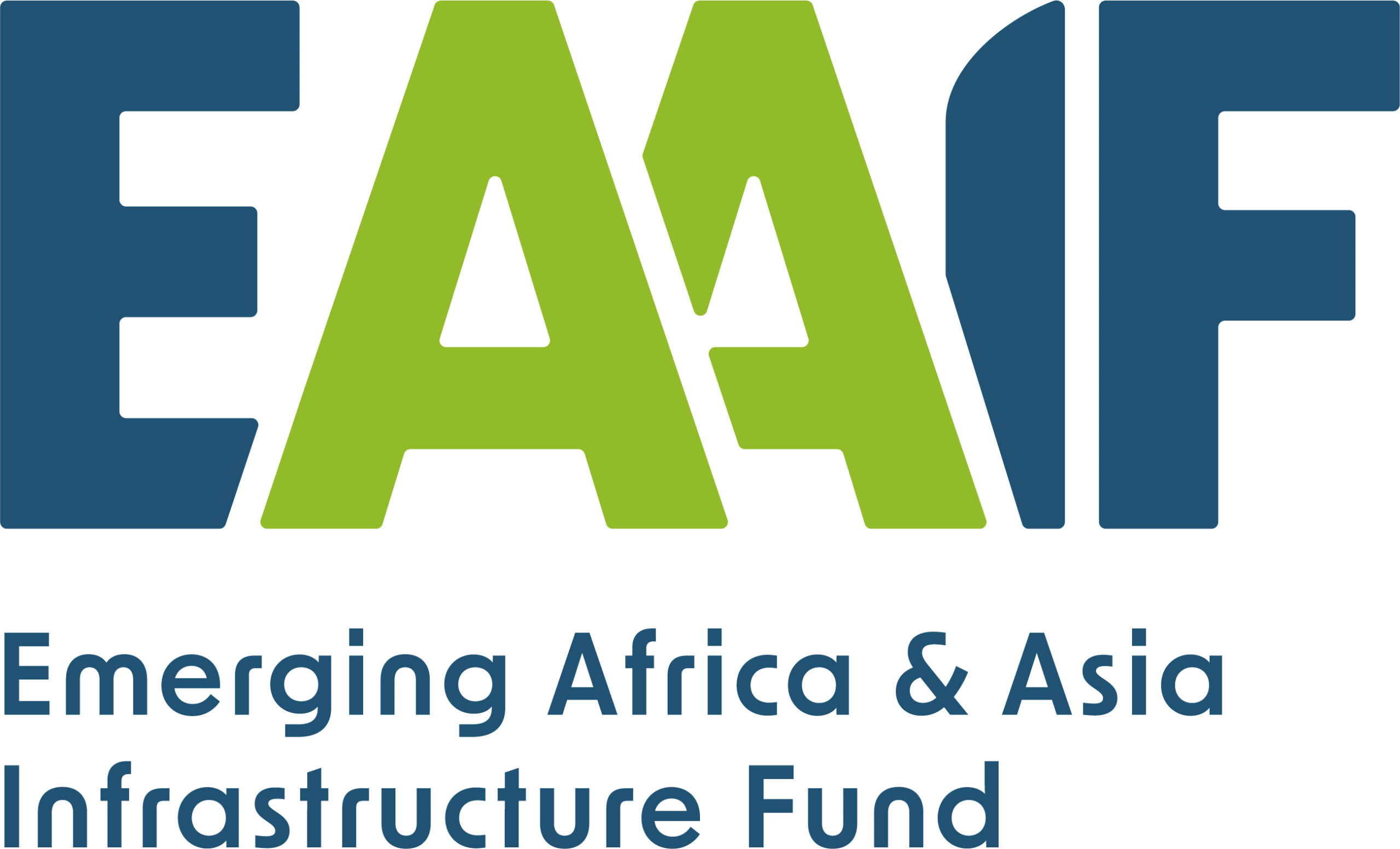
International Women’s Day: Choose to Challenge Gender Bias and Inequalities
By Wendy Mlotshwa Wendy Mlotshwa MSc BSc is an Environmental, Social and Governance analyst at the Cape Town offices of Ninety One, the managers of the Emerging Africa Infrastructure Fund (EAIF). In this article she looks at how PIDG and EAIF promote female empowerment in numerous aspects of infrastructure finance, construction and operation. Gender inequality… Read more »
By Wendy Mlotshwa
Wendy Mlotshwa MSc BSc is an Environmental, Social and Governance analyst at the Cape Town offices of Ninety One, the managers of the Emerging Africa Infrastructure Fund (EAIF). In this article she looks at how PIDG and EAIF promote female empowerment in numerous aspects of infrastructure finance, construction and operation.
Gender inequality is one of the greatest human rights challenges women face today and a multifaceted form of discrimination that disproportionately affect women of our society. Gender inequality stems primarily from beliefs, cultural and prevalent social norms and it can fuel or manifest itself differently depending on a number of factors including race, sexuality, ethnicity and politics. This form of discrimination is an everyday gendered experience for many women, and it exists in all spheres of life, from a household level to institutional settings. It even exists in the highest spheres of many governments where it is deeply entrenched in the legislation that fails to uphold and protect women’s right.
In the recent years, gender inequality has been a recurring theme and a highly topical subject globally. As a result, we have witnessed an emergence of social movements that choose to challenge gender inequality by shedding light on the plight of women in our society. The agenda to advance gender equality and the empowerment of women on a global scale is also at the heart of the Sustainable Development Goals (SDGs). SDG 5 of the United Nations (UN) aims to achieve gender equality and empower all women and girls for a peaceful, prosperous and sustainable world.
Challenging gender bias and inequality
As Emerging Africa Infrastructure Fund (EAIF), we recognise our key role in safeguarding and empowering women and girls in the companies and/or projects we finance. We have since adopted tools to evaluate and measure the impact our investments have on women and girls. EAIF investments are informed by the PIDG Gender Equity Action Plan, which outlines the key actions that we are committed to implement as a PIDG company to ensure both women and girls benefit from our infrastructure investments equitably.
EAIF investment projects are very diverse, ranging from small to large scale infrastructure in different geographical locations across a wide range of sectors. As a result, our efforts to effectively influence or integrate gender considerations will vary from one project to another. Something that is of paramount importance to us is the integration of gender matters throughout the investment process.
As part of the early stage Development Impact (DI) assessment, our transactions are screened using the PIDG Gender Ambition Framework, to identify where opportunities to empower women exist. This stage also involves mapping gender risks associated with our investments. The framework provides a gender analysis criterion that ultimately informs our investment decision. Using this framework, our investment process considers women on many different levels, i.e. the benefit of our investment/project in women not only as workers, but end-users, entrepreneurs, leaders/senior management as well as community members. Depending on the outcome of our initial assessments, EAIF takes different approaches in managing the impact (both positive and negative) of our investments. In every project the risks and opportunities for women and girls will vary significantly according to context.
For instance, in the case of projects that are considered to be highly developmental, EAIF is able to provide additional support, for example through the PIDG Technical Assistance grant to meet a range of needs associated with the project development cycle, which includes but not limited to gender. It is in our best interest to commit adequate financing to ensure that the positive impacts on women are promoted through our investments. We ensure that gender impacts are tracked. With gender considerations incorporated right at the beginning of our investments, there is value in monitoring gender issues that may arise during our investments and provide necessary support where needed and ensure that our borrowers are not only committed to gender issues but take action to make change happen.
If the project presents potential gender risks, specialist studies may be required to better understand the prevailing gender dynamics associated with our project to inform our gender additionality. When it comes to gender risks, gender-based violence and harassment (GBVH) is a primary area of concern. We simply cannot talk about gendered-power inequalities without talking about violence and harassment perpetuated by men against women in our society. GBVH is a serious human rights issue that is deeply rooted in gender inequality, and whilst it is not unavoidable, it can be prevented at least to some degree. These risks also exist even at the project level, including the projects we invest in. As such, GBVH risk assessment has become an integral part of our due diligence done prior to investing.
Our exposure to such gender risks will vary greatly across projects and geographies and they often tend to be heightened in certain scenarios, as outlined below:
- The infrastructure projects we finance are labour intensive and male dominated, especially during the construction phase, with few female workers who provide support services. This creates a gender imbalance in the work environment, and as a result GBVH risks are heightened.
- Prevalence of harmful gender norms and stereotypes in the surrounding communities where our projects are located are another driving force.
- The high influx of temporary, or foreign workers and/or job seekers can potentially result in social and cultural disruption in the communities where our projects operate.
- Some of our projects are located in remote areas and depending on the scale of the project, some employees might be required to work in isolated workstations or during the night (i.e. security personnel), where GBVH is less likely to be witnessed by others.
We recognise that our investments are exposed to these risks, and as an institutional investor, we have an obligation to challenge gendered power relations where it exists not only because of reputational risks but for social justice. As a minimum requirement, our projects have to be compliant with the Performance Standards of the International Finance Corporation, which EAIF and many development finance institutions have adopted. Our core guiding principles are those of PIDG. PIDG and IFC standards explicitly set out gender requirements, i.e. gender considerations in the planning of the implementation of the resettlement and/or livelihood restoration programmes. In addition, EAIF loan agreements stipulate and place legal obligations on borrowers to report and actively monitor gender obligations.
Also, highly topical and relevant in the present day is the prevalence of gender inequality in the context of COVID-19, which has been clearly exacerbated by the ‘new normal’ working conditions. Many of the construction sites during the period of peak transmission had to operate with skeleton staffs and strict site access to minimise physical contact and transmission risk. Given the GBVH risk of working in isolation, especially in remote project locations, this became a major concern for many of our projects, as research showed that the COVID-19 pandemic has created vulnerabilities for women and greater risk of more violence, exacerbating the existing gendered power inequality issues in our society. During the lockdowns, EAIF continued to provide support in managing GBVH risks in our project sites through our Environmental and Social Advisors. During this period EAIF also participated in a GBVH awareness podcast organised by PIDG. The GBVH awareness material will be made available to our portfolio companies.
As EAIF, we believe we have made important strides in the way we consider women in our investment decisions. EAIF’s investing with a gender lens has been a learning journey, and one that will be a game changer for the women that are involved in our projects, directly or indirectly.
Ninety One’s progressive actions
Ninety One is committed to attract, develop and retain a diverse team of people and approach all decision making with a diverse set of perspectives. We believe that this helps to ensure the best outcomes for our stakeholders. This year, we have continued our work on increasing female representation in senior leadership roles. We believe that the key to making further progress is to make our senior business leaders accountable for achieving diversity. To that end we have introduced a number of substantial changes at our business;
- Appointed a senior executive, responsible for diversity and inclusion;
- Signed the Women in Finance Charter;
- Appointed a board of directors, where half of the directors are female; and
- Committed to achieving a target of at least 30% of women in senior leadership by 2023 and linked the pay of our senior executives to the delivery of this target.
Ninety One also has gender diversity network called Ninety One Inspire. This network is created by women for women at Ninety One to promote gender diversity across the firm. It enables the exchange of knowledge and experiences in order to improve the opportunities for career success and plays an important role in helping us make our firm a more inclusive place of work.
A compelling case
The investment rationale for gender-targeted solutions is a compelling case that will not only shift gender power dynamics and empower women but also create a pathway for sustainable development. Gender equality is clearly an agenda that can no longer be ignored or sidelined, in corporate, politics and society at large. Society can no longer justify, defend or support the institutionalised gender norms that undermine the advancement of gender equality.
It is interesting to see more investors increasingly choosing to challenge the gender status quo and continuing to proactively channel funds in projects/companies that benefit women.
I am proud to be part of a generation of women who choose to unabashedly raise their voices against inequality within their spheres of influence.
I truly believe that to dismantle gender inequality, men need to become better allies for women in our societies and in the workspace. We do not have enough women representation at the table, where decisions are made. This is a clear indication that the gender gap is still persistent. However it needs to be challenged in a constructive manner.
The upward trend in gender lens investing is a game-changer for women around the world and will create a level ground for women from all walks of life.
About Wendy Mlotshwa
Wendy is an ESG Specialist with over 6 years of experience in managing environmental and social risks, development, implementation and compliance with environmental regulations and international standards. Her primary role is providing guidance on monitoring ESG performance. She is responsible for projects in Ghana, Kenya, Rwanda, Malawi, Uganda, Mozambique, Zimbabwe and Cameroon. Prior to joining Ninety One, Wendy worked as a Senior Environmental Assessment Practitioner and Sustainability Consultant, conducting environmental impact assessments, licensing and E&S monitoring for various infrastructure projects across Africa. She has a Masters in Ecological Science (Water Quality), BSc Hons. in Environmental Science from the University of KwaZulu Natal and is a Professional Natural Scientist with the South African Council for Natural Scientific Professions.
